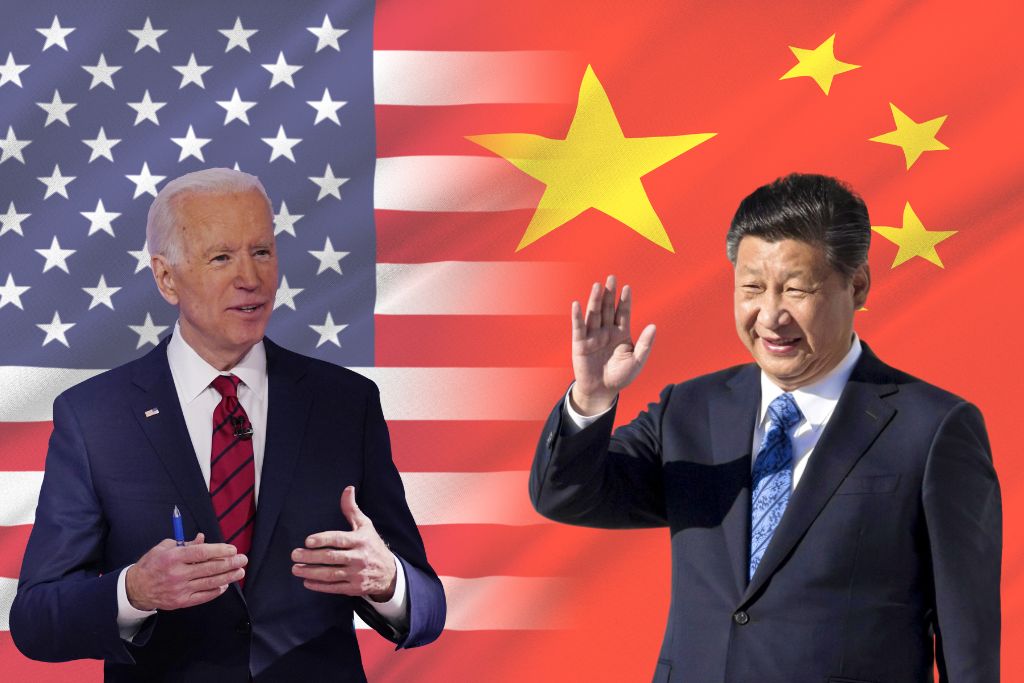U.S.-China Climate Deal Means Good Vibes for COP28
Here are key takeaways from the Sunnylands Statement on Enhancing Cooperation to Address the Climate Crisis ahead of the UN climate talks in Dubai.

The chances for a productive COP28—the U.N. climate talks that get underway Nov. 30 in Dubai—got a big boost from the recent climate agreement between the U.S. and China, the world’s two biggest polluters.
Announced just before President Joe Biden and China leader Xi Jinping met at the APEC Summit in San Francisco, the Sunnylands Statement on Enhancing Cooperation to Address the Climate Crisis was negotiated by Climate Envoy John Kerry and his Chinese counterpart Xie Zhenhua who met for tough negotiations in July and again this month. The hope is that a high-level statement from Chinese and American leaders like this one will unleash more activity among climate experts, private companies, and other governments when they meet in Dubai.
My colleague Alex Wang, faculty co-director at the UCLA Emmett Institute, took part in events at APEC and will be in Dubai for COP28. He says that “in the community of people who work on US-China climate cooperation, there is the sense that the barriers to working together have been reduced in a very substantial way after the events of the last few months.” That can only be a good thing for the climate talks, which face all manner of other headwinds. Below is more of my conversation with Wang.
What was most noticeable to you about the U.S.-China climate deal now that we’ve had time to review it?
A few things are notable about this statement. Consider the affirmation of the G20 Leaders Declaration to “pursue efforts to triple renewable energy capacity globally by 2030” and a statement of intent from both countries to “sufficiently accelerate renewable energy deployment in their respective economies through 2030 from 2020 levels so as to accelerate the substitution for coal, oil and gas generation, and thereby anticipate post-peaking meaningful absolute power sector emission reduction, in the critical decade of the 2020s.” That’s a mouthful and it obviously reflects carefully crafted language, but it is important to hear this from both of the largest global emitters. And it is a partial response to perhaps the biggest criticism of China’s current approach of continuing to permit massive amounts of new coal-fired power capacity. Some analysts are predicting that as China’s rate of renewable energy deployment exceeds the rate of energy demand growth it will lead to reduced USE of coal-fired power plants. For the U.S., this is an affirmation from this administration that the goal is to deploy renewable energy in a way that supplants coal, oil and gas. We see here that the political economy in both countries is shifting in directions ever more favorable to this move to rapid renewable energy deployment. Top-level leadership support can only help sustain this trend.
There are also important passages on methane and other non-CO2 GHG emissions, subnational cooperation (where California will continue to play a major role), forests, and plastics. Notably, there are two passages on topics that have in recent history been bigger Chinese priorities: “circular economy and resource efficiency,” and “GHG and air pollutant reduction synergy.” This is important to give the Chinese side a greater sense of investment and buy-in in the statement. Past statements of this sort have often felt more U.S.-driven.
Finally, both sides offer a brief statement on the upcoming 2035 NDCs, or nationally determined contributions, that they will be “economy-wide, includ[ing] all greenhouse gases” and that they will reflect reduction aligned with Paris goals. That’s not much guidance in what each country will do, but it reminds us of the importance of the next NDC each country puts forth. This was the way the Paris Agreement was supposed to work, with each country responding to changed conditions on the ground to, hopefully, issue targets and action plans with greater ambition.
What is lacking or absent from the deal?
One would always hope for much more specificity. The statement is characteristically general and vague in the details. Moreover, the statement is silent on the geopolitical tension points surrounding industrial competitiveness, trade barriers, clean energy and transportation supply chains, and the like. One would not expect these sorts of tension points to be discussed in a statement like this, but the silence on these is deafening in some ways and reminds us of the potential for geopolitics to get in the way of global climate action.
What was the mood like at APEC during the Xi-Biden meeting and at other high-level dialogue events?
I took part in an all-day US-China climate dialogue and the mood in the room was positive and hopeful. There is still an incredible amount to do, but the sense was that we will have more space to get to work going forward. The thaw in US-China relations this fall has been palpable. Taken together, the visit of California Governor Gavin Newsom to China, the Sunnylands statement, the Xi-Biden meeting—these all point to the possibility for greater engagement in a way that has not been possible over the last few years.
What are likely to be some of the unresolved sticking points for negotiations at COP28?
There will be important back-and-forth in a few major areas like coal, methane, loss and damage. For me, I will be interested to see how not only the countries, but also the wider world beyond—private companies, civil society generally—respond to the Global Stocktake. Will the meeting and further evidence that we are not taking sufficient climate action help to generate more momentum for stronger action? Let’s hope so.






Reader Comments